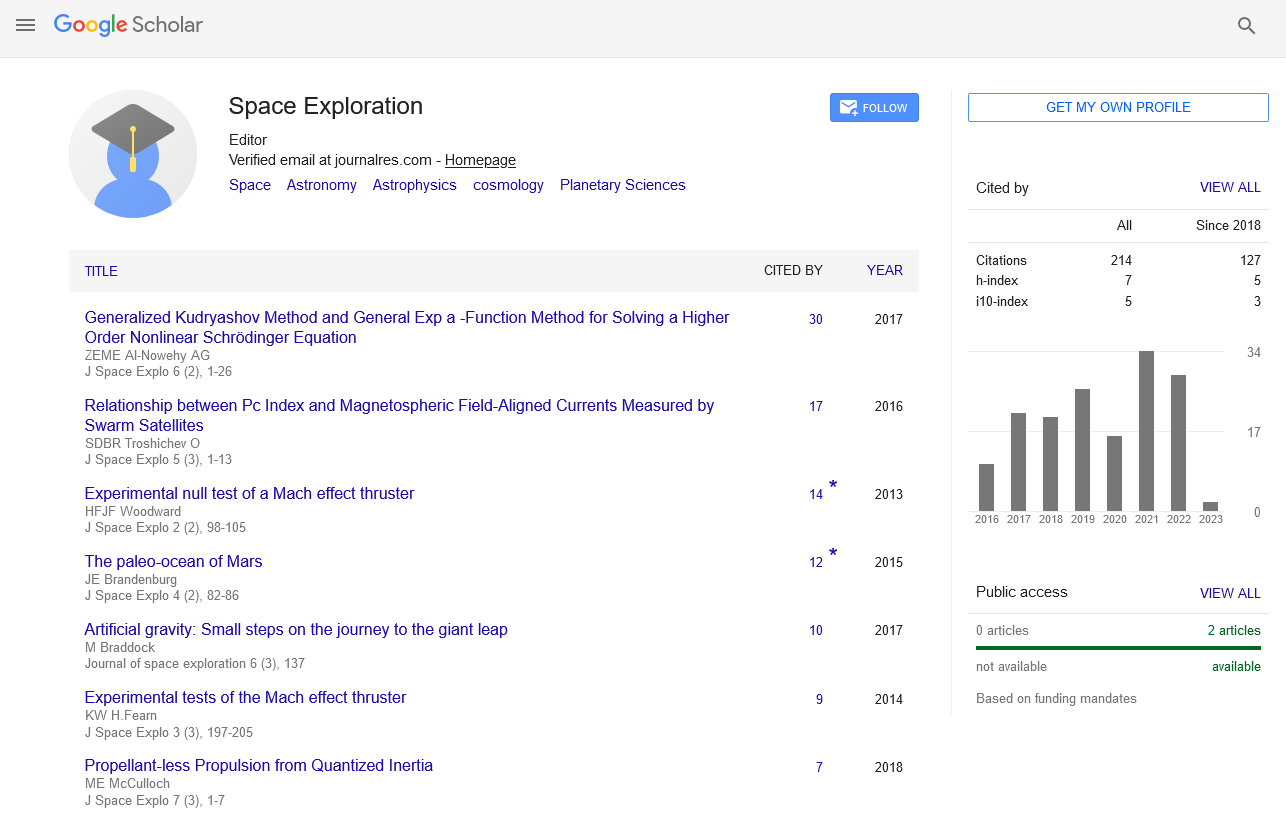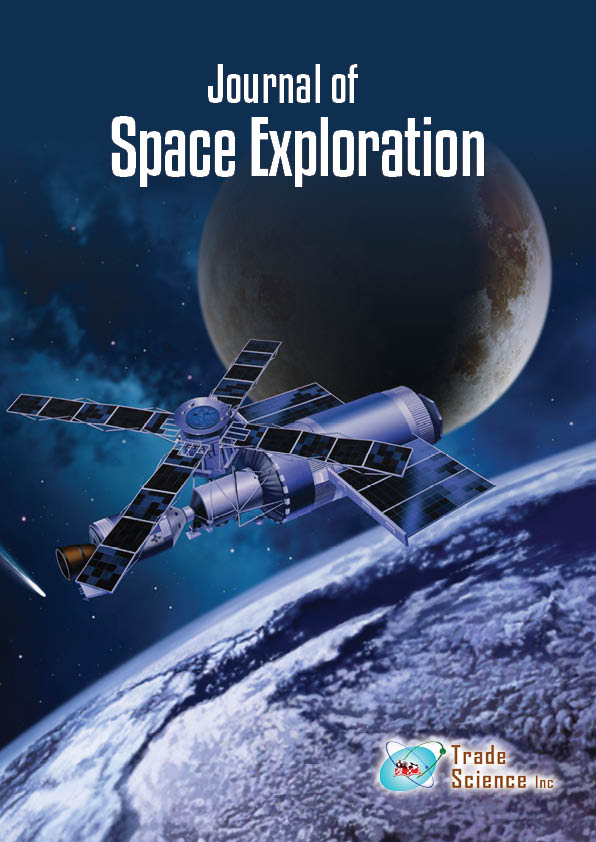Perspective
, Volume: 14( 1) DOI: 10.37532/2320-6756.2025.14(1).386The Role of Artificial Intelligence in Space Exploration
- *Correspondence:
-
Emma Miller
Department of Space Exploration, Aarhus University, Aarhus Centrum, Denmark
E-mail: milleremma85@gmail.com
Received: September 14, 2023, Manuscript No. TSSE-23-113800; Editor assigned: September 18, 2023, PreQC No. TSSE-23-113800 (PQ); Reviewed: October 03, 2023, QC No. TSSE-23-113800; Revised: January 09, 2025, Manuscript No. TSSE-23-113800 (R); Published: January 16, 2025, DOI. 10.37532/2320-6756.2025.14(1).386
Citation: Miller E. The Role of Artificial Intelligence in Space Exploration. J Space Explor. 2025;14(1):386.
Introduction
The exploration of space has always been a human endeavor fueled by curiosity and the desire to understand the universe. Over the decades, technology has played a pivotal role in advancing our capabilities to explore the cosmos. One of the most transformative technologies in this pursuit is Artificial Intelligence (AI). AI has rapidly evolved and integrated itself into various aspects of space exploration, revolutionizing the way we explore and understand the cosmos. In this article, we will explore the pivotal role that AI plays in space exploration and its impact on the future of space exploration.
Description
Autonomous spacecraft
One of the most significant applications of AI in space exploration is the development of autonomous spacecraft. Traditionally, space missions required constant human intervention, which was not only costly but also limited the scope and duration of missions. AI has changed this paradigm by enabling spacecraft to make decisions and adapt to changing conditions in real-time. AI-powered autonomous spacecraft can perform tasks such as navigation, collision avoidance, and data analysis without human intervention. For example, NASA's Mars rovers, like Curiosity and Perseverance, use AI algorithms to autonomously navigate the Martian terrain, avoiding obstacles and selecting the best paths for exploration. This level of autonomy allows these missions to be more efficient and responsive to unexpected challenges.
Robotic exploration
Robotic explorers have been instrumental in advancing our understanding of the solar system and beyond. AI plays a crucial role in making these robots more capable and versatile. For instance, AI algorithms enable robotic arms to manipulate objects with precision, identify interesting features, and even assist in sample collection. Furthermore, AI-driven computer vision and machine learning algorithms help analyze vast amounts of data collected by robotic missions. This includes identifying geological formations, characterizing planetary atmospheres, and detecting signs of past or present life. These capabilities significantly enhance the scientific return of space missions.
Space telescopes and astronomy
AI has also revolutionized the field of astronomy and our ability to observe the universe. Space telescopes like the Hubble Space Telescope and the James Webb Space Telescope utilize AI for a range of tasks, including image processing, data analysis, and target selection. AI algorithms can help identify celestial objects and prioritize observations based on scientific goals, optimizing the telescope's limited observing time.
Moreover, AI has been pivotal in the search for exoplanets. Machine learning algorithms can sift through the massive datasets generated by instruments like the Kepler Space Telescope to identify potential exoplanets by detecting subtle changes in a star's brightness caused by a transiting planet. These advancements have led to the discovery of thousands of exoplanets, significantly expanding our understanding of the cosmos.
Space weather prediction
Understanding space weather is critical for the safety of astronauts and the functionality of spacecraft in Earth's orbit. AI models are used to predict and monitor space weather events, such as solar flares and geomagnetic storms. These predictions help space agencies and satellite operators take necessary precautions to protect their assets and ensure mission success.
Future exploration
The role of AI in space exploration is only expected to grow in the future. AI will play a pivotal role in planning and executing crewed missions to destinations like Mars, where the time lag in communication makes real-time decision-making impossible. AI systems will assist in life support, habitat control, and even medical diagnosis and treatment during long-duration space missions. Additionally, AI-powered robotic missions will continue to explore distant worlds and celestial bodies. Upcoming missions to explore the icy moons of Jupiter and Saturn will rely heavily on AI to navigate the challenging environments and collect valuable data.
Conclusion
Artificial intelligence has become an indispensable tool in the realm of space exploration. Its ability to autonomously operate spacecraft, enhance robotic exploration, optimize space telescope observations, predict space weather, and assist in future crewed mission’s positions AI as a driving force in the future of space exploration. As technology continues to advance, the synergy between AI and space exploration will lead to new discoveries and expand our understanding of the universe, making the cosmos more accessible and exciting than ever before.

